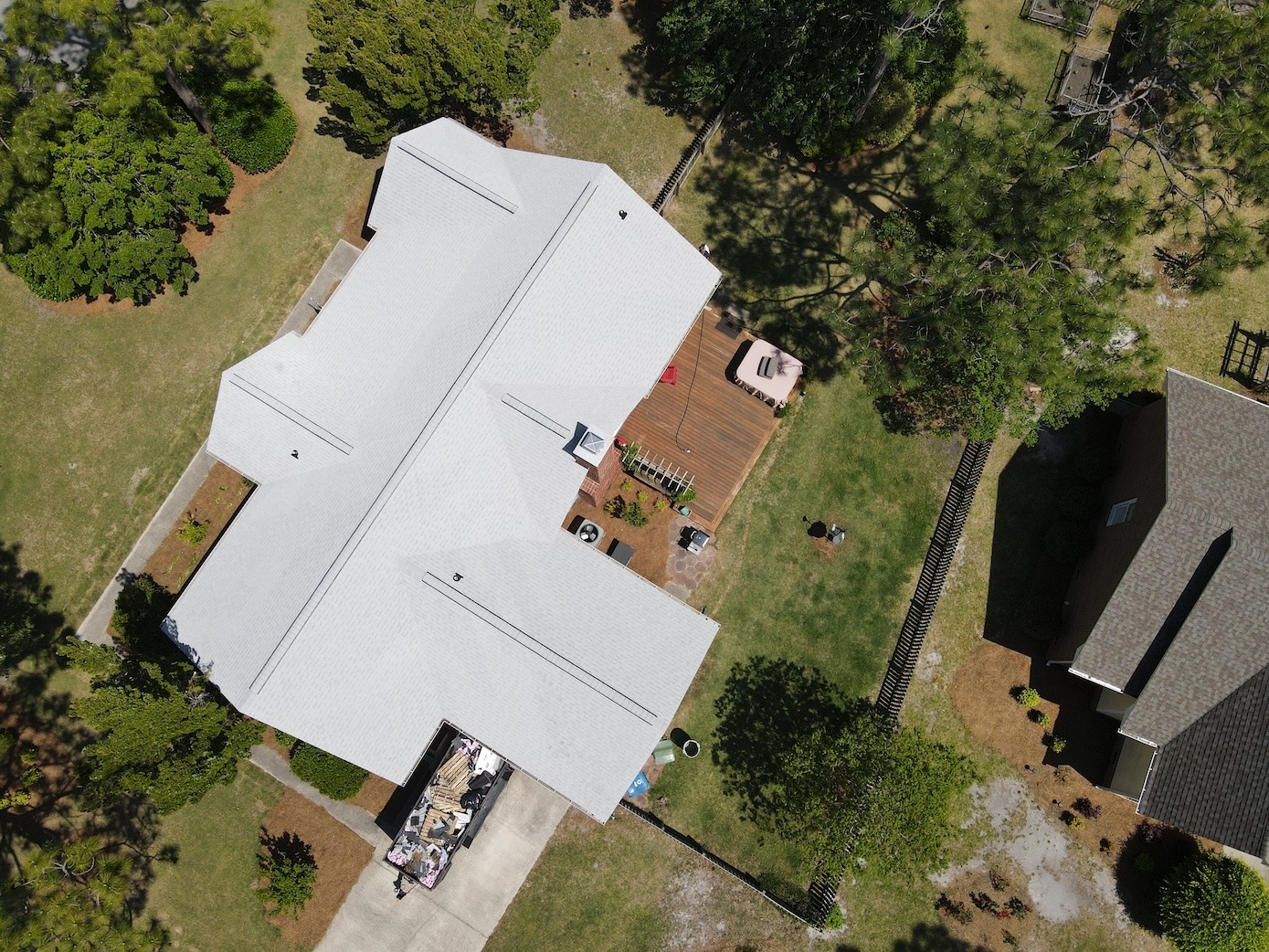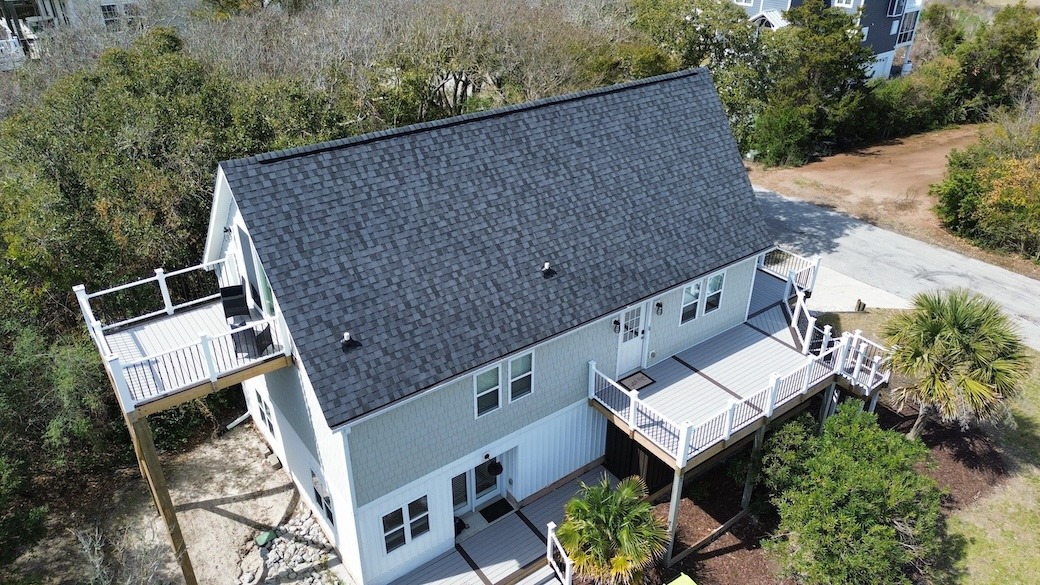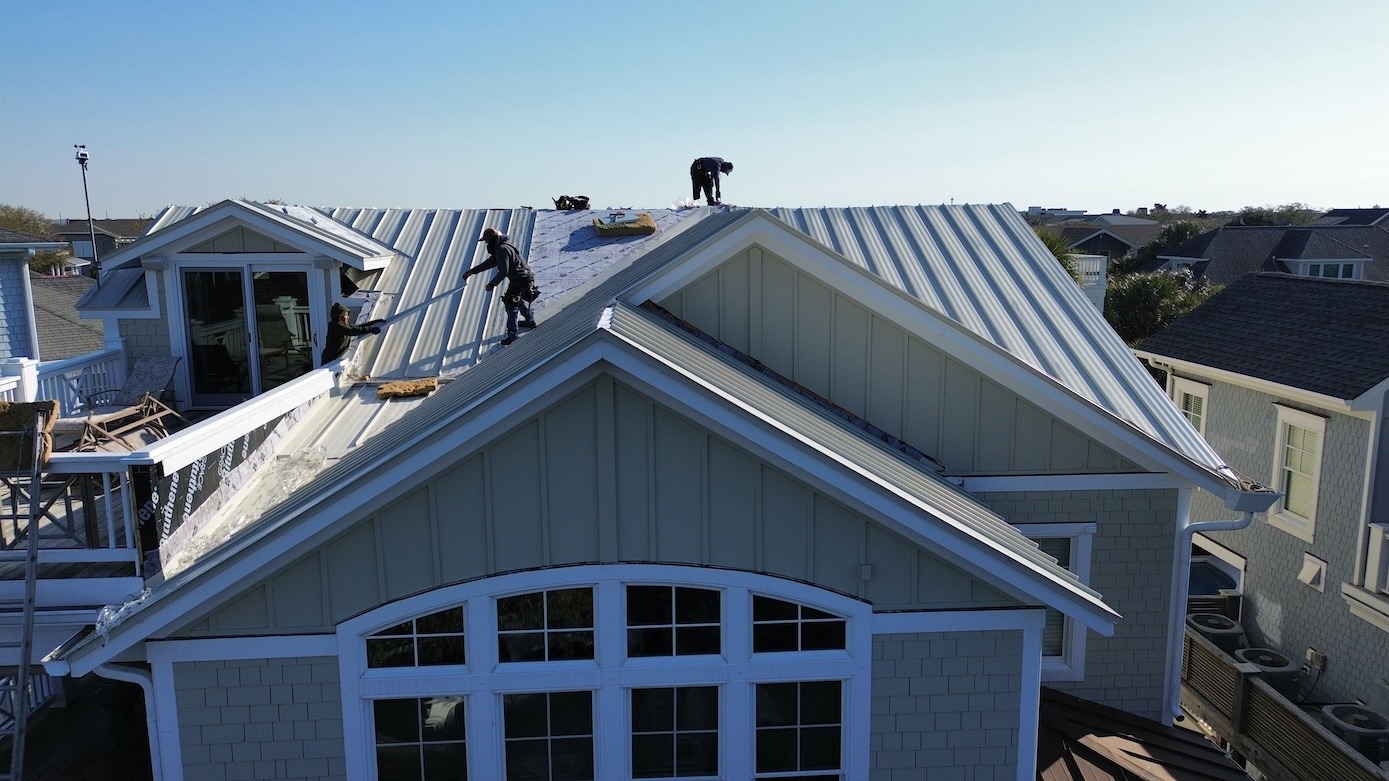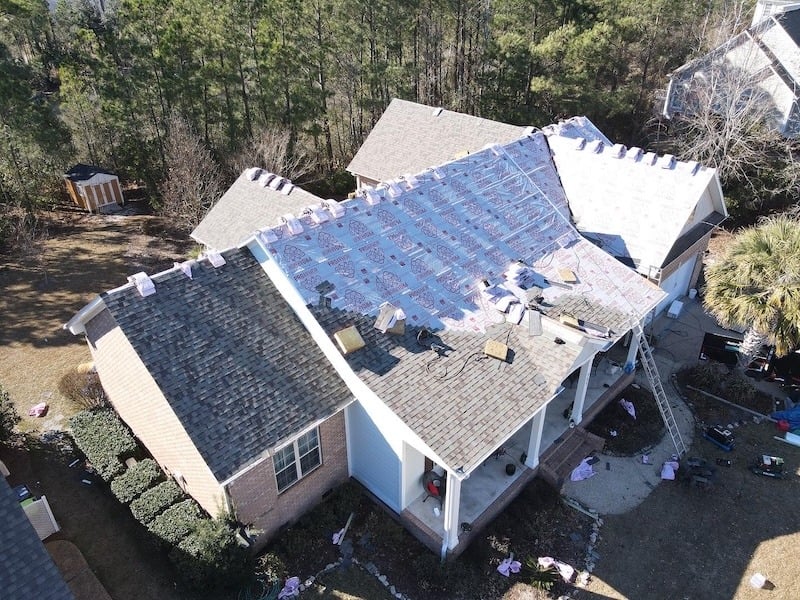How Roof Color Can Affect Your Home’s Energy Efficiency
Summit Roofing

Are you feeling the summer heat and noticing a spike in your energy bills? You’re not alone. Many homeowners in Wilmington, NC, are seeking ways to enhance their home’s energy efficiency, and an often-overlooked factor is the color of their roof. Yes, the color of your roof can significantly impact your home’s temperature and energy consumption. In this blog, we’ll explore how roof color affects energy efficiency and provide insights to help you make the best choice for your home.
Roof Color and Energy Efficiency
The color of your roof plays a large part in how much heat your home absorbs or reflects. Dark-colored roofs, like black or dark brown, tend to absorb more sunlight, which can increase your home's temperature and lead to higher cooling costs. On the other hand, light-colored roofs, such as white or light gray, reflect more sunlight and keep your home cooler. This principle is the foundation of solar reflective roofing, which is designed to maximize energy efficiency.
Choosing the Right Roof Color
Cool Roof Colors for Better Energy Efficiency
Cool roof colors are specifically chosen for their ability to reflect more sunlight and absorb less heat. Colors like white, light gray, and even some shades of blue and green are excellent for keeping your home cooler. In the Wilmington area, where the summer heat can be intense, opting for cool roof colors can significantly reduce your cooling costs and make your home more comfortable.
Factors to Consider When Selecting a Roof Color for Energy Savings
When selecting a roof color for energy efficiency, consider factors like your local climate, the orientation of your home, and the amount of direct sunlight your roof receives. In hot climates, lighter colors are generally more effective. However, it's also essential to consider the aesthetic appeal and how the roof color complements your home's overall design.
Enhancing Energy Efficiency with Reflective Coatings and Materials
Reflective Roof Coatings
Reflective roof coatings are an excellent way to enhance the energy efficiency of your roof. These coatings can be applied to existing roofs to improve their ability to reflect sunlight. They work by creating a reflective barrier that reduces heat absorption, thus lowering indoor temperatures and reducing the need for air conditioning.
Energy-Saving Roof Materials
In addition to choosing the right color, selecting energy-efficient roofing materials is necessary. Materials like metal, tile, and certain types of shingles are designed to enhance energy efficiency. Combining these materials with the right roof color can maximize your home’s energy savings.
The Impact of Roof Color on Energy Bills and Home Temperature
How Roof Color Affects Home Temperature and Energy Bills
The impact of roof color on energy bills can be significant. According to the U.S. Department of Energy, cool roofs can lower roof temperatures by up to 50°F, which in turn can reduce cooling energy use by 10-15%. Homeowners have reported noticeable reductions in their energy bills after switching to lighter-colored roofs or applying reflective coatings.
Light vs Dark Roof Colors: Light roof colors are ideal for hot climates as they reflect more sunlight and keep your home cooler. However, in colder climates, dark roof colors can be beneficial as they absorb more heat and help keep your home warm. Understanding the pros and cons of each can help you make an informed decision based on your local climate and energy needs.
Roof Color and Home Insulation: The effectiveness of your home insulation can also be influenced by your roof color. Light-colored roofs can reduce the heat load on your insulation, making it more effective in keeping your home cool. Conversely, dark-colored roofs can increase the heat load, causing your insulation to work harder.
Sustainable and Eco-Friendly Roofing Solutions
Eco-Friendly Roof Options: Sustainable roofing solutions are gaining popularity among environmentally conscious homeowners. Eco-friendly options include cool roofs, green roofs, and roofs made from recycled materials. These solutions not only enhance energy efficiency but also contribute to a healthier environment by reducing the urban heat island effect.
Combining Sustainable Practices with the Right Roof Color: Sustainable roofing solutions, such as solar reflective roofing and eco-friendly materials, offer long-term benefits. These options not only improve energy efficiency but also reduce your carbon footprint. By combining sustainable practices with the right roof color, you can achieve maximum energy savings and contribute to a greener future.
Roofing Solutions With Summit Roofing
Choosing the right roof color can make a significant difference in your home’s energy efficiency and comfort. By understanding how different colors and materials impact your home’s temperature and energy consumption, you can make informed decisions that benefit both your wallet and the environment.
If you’re considering a roof replacement or looking to improve your home’s energy efficiency, contact Summit Roofing in Wilmington, NC. Our team of experts is here to provide personalized advice and top-quality services to help you achieve the best results. Don’t wait—reach out to us today and start enjoying a more energy-efficient home.








